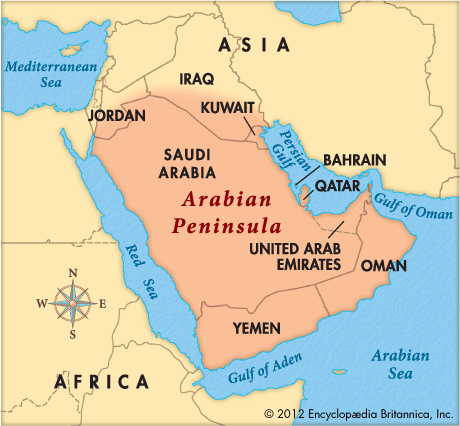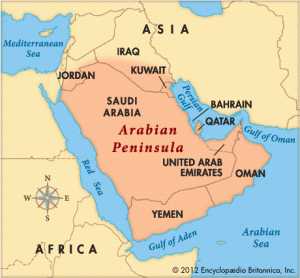


This plan involves four demands: an immediate ceasefire, a halt to attacks by Saudi-Gulf Cooperation Council-led war planes, provisions for a safe corridor to provide much needed humanitarian relief and the resumption of political dialogue. This proposal came just one day after the U.N. secretary general called for an immediate ceasefire.
On April 20, Zarif published a letter in the opinion and editorial section of the New York Times stating Iran’s willingness to cooperate with other regional states and the international community in solving the crisis of the numerous wars in the Persian Gulf and the broader Middle East. The foreign minister stressed that Tehran’s recent agreement with the United States and European Union addressing its nuclear program could serve as an impetus for serious multilateral talks on other issues.
Zarif noted that without a broader framework for resolving ongoing interventions and humanitarian challenges, the current atmosphere of dialogue could easily be lost to open confrontation over Yemen, Iraq, Syria and other countries.
The foreign minister stressed: “The Iranian people have shown their resolve by choosing to engage with dignity. It is time for the United States and its Western allies to make the choice between cooperation and confrontation, between negotiations and grandstanding, and between agreement and coercion.”
This same letter goes on to emphasize that “if one were to begin serious discussion of the calamities the region faces, Yemen would be a good place to start.”
Operation Decisive Storm, the bombing campaign of the Saudi-GCC alliance against the Ansurallah or Houthi forces in Yemen, is a manifestation of U.S. imperialist efforts to continue its proxy war against Iran. The expansion of the war in Yemen has implications for developments in Iraq and Syria, as both states have spoken out about their strong opposition to the bombing of Yemen and the threat of a possible ground invasion by Egypt and Sunni-led rebel groups that are funded by Riyadh.
Ansurallah leader says U.S. at the root of war in Yemen
Since March 26, the Saudi Arabian air force in alliance with other Gulf Cooperation Council states, without any semblance of a U.N. or international mandate, has carried out the massive bombardment of Yemen. There has also been a naval blockade denying much needed food and other goods entry into the most underdeveloped territories in the region.
Nonetheless, the U.N. Security Council passed a resolution on April 14 imposing an arms embargo on the Ansurallah movement demanding that they withdraw from areas where their fighters have control. The resolution also placed asset freezes and travel bans on key leaders of the Houthis.
The U.S. supplies the Saudis and the GCC with fighter planes, weapons, intelligence support and refueling that is facilitating the bombing of Yemen. The Ansurallah is a Shia-based movement that has taken large swaths of territory in the north, central and south of Yemen.
In a television address aired over Press TV, the Ansurallah leader, Abdel-Malik al-Houthi, blamed the U.S. for the war against his country. He charged the Pentagon with pointing out areas in Yemen to be attacked.
“‘We do not need permission from the [United Nations Security Council] to defend our country, al-Houthi said, stressing, ‘The Yemeni people have the right and legitimacy to defend their land. ‘Our great people will not surrender, they will stand.’” (April 19)
The Ansurallah leader said that the objective of the Saudi-GCC bombing is to “return Yemen to the Israeli and U.S. identity.”
Bombing spreads in Yemen
Meanwhile, the Saudi-GCC alliance continues its bombing in 18 out of 22 provinces in Yemen, displacing 150,000 people, killing an estimated 2,600 people, mostly civilians, and wounding 2,900 others.
A further escalation in the bombardments took place on April 20, when homes were destroyed in Sanaa killing at least 15 people. Oxfam, the London-based organization, reported that many civilians have been targets of the attacks. The group said that one of its food storage warehouses, where no arms or fighters from the Ansurallah are based, was struck, even though the coalition knew of all the locations. (NY Times, April 20)
Bombing of Yemen threatens broader war
The bombing in Sanaa on April 20 set off another round of diplomatic wrangling. The Iranian foreign ministry summoned the Saudi Arabian ambassador in Tehran to express displeasure at the current situation. Indonesian Foreign Minister Retno Marsudi said in Jakarta that the government was opposed to the bombings, which have resulted in the wounding of two of its diplomatic personnel.
A Yemeni television station, al-Yemen al-Youm, was hit by the Saudi-GCC bombs on April 20 leaving three of its staff dead. The area around Faj Attan has been a frequent target of the air campaign over the last few weeks.
Iran in recent statements has expressed its willingness to become more directly involved in the Yemeni situation, warning Saudi Arabia and the U.S. that any attack on its territory will be met with fierce retaliation.
Just one day before, the commander of the Iranian Army’s Ground Forces, Brig. Gen. Ahmad Reza Pourdastan, warned Saudi Arabia in the Press TV report, “The Saudi Arabian army has no war experience and is very fragile and if it is confronted with a war of attrition, it should await crushing blows and it will suffer heavy defeat.”
Raposo is a Portuguese Marxist analyst, editor of the web magazine jornalmudardevida.net, where this article…
By Alireza Salehi The following commentary first appeared on the Iranian-based Press TV at tinyurl.com/53hdhskk.…
This is Part Two of a series based on a talk given at a national…
Educators for Palestine released the following news release on July 19, 2025. Washington, D.C. Educators…
On July 17, a court in France ordered the release of Georges Abdallah, a Lebanese…
The following are highlights from a speech given by Yemen’s Ansarallah Commander Sayyed Abdul-Malik Badr…